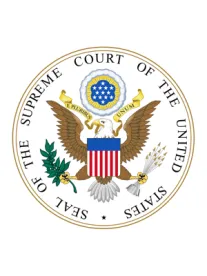On Jan. 13, during oral argument, U.S. Supreme Court Justice Antonin Scalia echoed businesses’ skepticism about the EEOC’s pre-suit settlement strategy, saying “there is considerable incentive on the EEOC to fail in conciliation so that it can bring a bigdeal lawsuit and get a lot of press and put a lot of pressure on this employer and on other employers. There are real incentives to have conciliation fail.”
Justice Scalia made his comments in the case of Mach Mining L.L.C. v. Equal Employment Opportunity Commission. In the Mach Mining case, the EEOC sued the company for sex discrimination on behalf of a class of women who were denied jobs. The EEOC’s pursuit of high-profile litigation (accelerated during the Obama Administration and intended to “send a message to employers”) is supposed to come after the EEOC has attempted to conciliate discrimination charges. But that conciliation process, and–in particular, court review of that process—is now before the Supreme Court.
By law, the EEOC is to “conciliate” cases after having found “reasonable cause” that a violation of the law has occurred, andbefore filing a lawsuit against the employer. Importantly, the language of Title VII specifically requires the EEOC to “endeavor to eliminate” alleged discrimination by “informal methods of conference, conciliation, and persuasion.”
But, after the EEOC filed suit against Mach Mining, the company accused the EEOC of failing to conciliate in good faith. The battle over the “good faith” conciliation has derailed the underlying case and for nearly two years, the case has been mired in a mini-battle about whether the EEOC has discretion on conciliation, or its conduct should be reviewed by a court. The EEOC’s position is that it has the discretion and should not be second-guessed; Mach Mining insists that “conference, conciliation, and persuasion” must be done in good faith, and subject to court review.
During the oral argument, Chief Justice Roberts said, “I am very troubled by the idea that the government can do something and we can’t even look at whether they’ve complied with the law.” Justice Kennedy noted that he couldn’t find another situation in which a court “has essentially declined to review a statutory precondition” to filing a lawsuit.
Yet, some justices were sympathetic to the EEOC’s position that companies are turning conciliation tactics into a legal strategy– to fight the EEOC about “good faith” conciliation to avoid and prolong the underlying discrimination case.
In the end, there seemed to be some agreement that judicial review of the conciliation process is appropriate, but, as Justice Breyer queried, “the issue is how much.” The lawyers and justices hinted at several options, even including directing the EEOC to issue regulations. Mach Mining and its supporters hope that the prospect of court review will cause the EEOC to be reasonable in its demands to employers before rushing to the Courthouse.
For more detailed legal analysis, visit the Supreme Court blog.




 />i
/>i

